|
|

|
Don Howland has been in a long list of bands that�ll light up a Terminal Boredom and Goner Records forum search, if not many mainstream music sites. Like most artists creating music that (actually) matters, he�s on the periphery�but that doesn�t diminish Howland�s impressive and prodigious body of work to those paying attention.
Originally from Columbus, Ohio, Don started out as a rock writer for local mag The Offense before briefly joining Great Plains as a bassist. In 1983, Howland moved to New York City where he contributed articles to the New York Rocker, as well as writing under the mentorship of Robert Christgau for the Village Voice. Don moved back to Columbus in 1985 and joined Jeffrey Evans and Dan Dow in the Gibson Bros. Influenced by The Cramps and The Panther Burns, The Gibson Bros. lowered standards for everyone, pissing off Americana purists (as well as club patrons who appreciated tuned instruments) with early rockabilly and Alice Cooper covers so raw and off-kilter they bordered on art-rock. Forced Exposure and Gerard Cosloy at Homestead got it, as did other musicians who�d tweak the formula a bit and achieve slightly greater commercial success. The original lineup (including Ellen Hoover on drums) imploded after arguably their best record, 1989�s 'Dedicated Fool'. Jeffrey Evans and Don Howland subsequently reinvented the band as a more rocking and competent outfit, with a slew of semi-permanent and guest musicians�guitarists Jack Taylor and Jon Spencer; drummers Rich Lillash, Cristina Martinez and Ross Johnson. An unfortunate lawsuit from Norton Records ended their time with Homestead. The Gibson Bros. released their last album, 'Memphis Sol Today!', on Sympathy For The Record Industry in 1993.
Just before the Gibson Bros.� implosion, Don started what would become his longest-running project, the Bassholes, with drummer Rich Lillash. Releasing much of their output with In the Red, the Bassholes were a fan favorite; however, Don�s regular and laudable job as a teacher prevented prolonged touring. Lamont �Bim� Thomas took over for Lillash, starting with 1997�s 'Deaf Mix Vol. 3'. Howland played in a brief yet notable project, Ego Summit, in 1997 with fellow Columbus heavyweights Ron House, Michael Hummel, Tommy Jay and the late Jim Shepard.
Lately, Don Howland has been releasing records under his own name. 2015�s 'Life Is a Nightmare' is one of Howland�s best records. Another solo full-length, as well as a long-awaited Burning Bus LP, will be available soon from In the Red. The Bassholes are still playing when time is available. 2013�s 'Boogieman Stew' on venerable Columbus Discount was, like most of Howland�s output, excellent and overlooked.
|
|
|
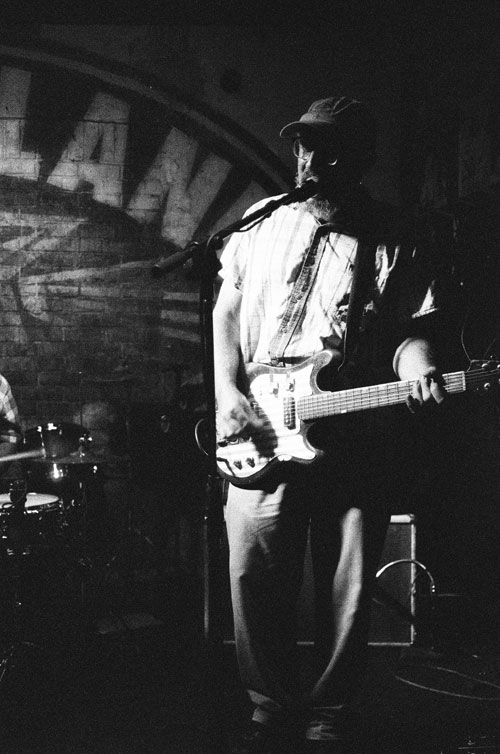
|
TB: You�re originally from Columbus, Ohio, correct?
Don: That�s right.
TB: What were you interested in growing up?
Don: My childhood was super bland. My parents moved to a very white suburb of Columbus because they wanted me to go to good schools. My school years were basically ones of total alienation. I didn�t fit in; I didn�t join anything. It was miserable. I ran long distance as a way to beat down depression. I got into rock music. I had one friend who was into Creem magazine. We were into Lester Bangs and all that. I got the Ramones (self-titled) album the first day it came out.
TB: Were you in high school when punk hit?
Don: Yeah. I was a senior in the spring of �76 when the first Ramones record came out. I had no idea what I was going to do with my life. The Ramones record had a sense of humor and a way of looking at the world that was similar to my own. It was just someone else doing it, and it sounded really, really good. The simplicity of their music appealed to me. I'd been into metal before. Music really grabbed me then.
TB: Were you playing music then?
Don: I didn�t play music for a while. I started writing about music first. I did a punk fanzine. It was modeled after Xerox sheets like Sniffin� Glue, which I ordered through Bomp!. I did a couple issues of that, but it was terrible.
TB: What was your zine called?
Don: It was called Shake It. It was the name of a Human Switchboard song. They were sort of Columbus royalty at the time. Columbus really didn�t have a punk scene. Columbus was a Quaalude and whiskey town.
TB: Sounds a lot like Memphis at the time: �ludes and alcohol.
Don: Columbus was probably a lot like Memphis. You don�t really think of Memphis and punk rock until Tav Falco came along. There wasn�t a lot going on in Columbus at the time.
TB: Was Used Kids Records around when you were in high school?
Don: Yeah, but back then it was called Mole�s Record Exchange. It was in a walk-up office building, in a small office, maybe thirty-by-twenty feet. I remember the first time I went there in high school�it was like the store had a force field surrounding it; like I wasn�t cool enough to go in. Eventually, I started hanging out there. Everything fell into place. Used Kids started when Moles had to move and the owner quit. Dan Dow kind of attached himself to School Kids Records a couple blocks north. School Kids wasn�t a chain but there was one in Columbus and one in Ann Arbor. School Kids sold all new records.
|
|
|
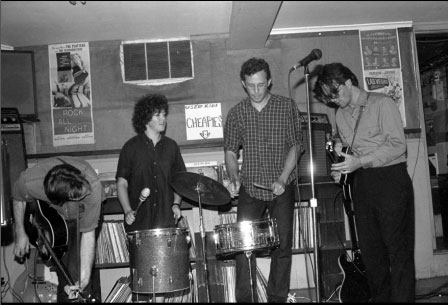
|
TB: So Used Kids was a play on School Kids because the former sold used vinyl?
Don: Right. I never liked that name: Used Kids. It�s like a lot of bad band names I hear today. �Really? You couldn�t come up with anything better?�
TB: �Has the list been exhausted?�
Don: Exactly. Used Kids was sort of the center of the Columbus scene, much more so than any band or venue. In the mid �80s, I started playing bass in Ron House�s band.
TB: How did joining Great Plains come about? Did you learn bass to play in the band?
Don: I did. I bought a bass from a kid in a trailer who needed money to buy a gun. Bass isn�t hard to learn. I was good enough to play pretty quick. There were only ten or fifteen people in the Columbus scene. Ron and I knew each other from the record store. Amrep (Michael Hummel) and Jim Shepard were around�all the Ego Summit guys. In a bigger city we would�ve likely been acquaintances, but in a city the size of Columbus we all became compadres I guess. I was the youngest in the group. I was an outsider, being from a white flight suburb, but it was no big deal. Tim Anstaett of The Offense went to my high school, so when he moved back to Columbus from Florida there were two of us.
TB: You wrote for The Offense and contributed to some of the last issues of New York Rocker.
Don: That was thanks to Tim Anstaett from The Offense. He gave people free reign. Tim had an insane work ethic. Whatever his passions were at the time, he�d devote thirty-six hours a day to them. He wrote a telephone book-sized tome on bass fishing in Florida. Andy Schwartz and Ira Kaplan at the New York Rocker were very open to the fanzine vibe. Through New York Rocker � I also sent some of my work with The Offense to him � I got to know Robert Christgau at the Village Voice. I started writing for the Voice. Christgau was a super nice guy. I probably learned more about writing and English from him than from anyone else, and I�ve taught English for twenty-one years. Christgau would spend two-and-a-half hours editing a two-hundred-fifty-word piece. That was a great experience. I started with the Voice in �81 and wrote for them until the early �90s. There wasn�t a whole lot of great music going on then. The early �80s were rough. When punk died�and you could tell it died�hardcore came along and it�s like, �Shit. This is not the same. There are no girls here anymore. It�s just like a football game.� I wrote for Spin as well.
TB: New York Rocker was a great magazine.
Don: It was.
TB: What was your brief tenure in Great Plains like? You played on an EP ('The Mark, Don and Mel E.P.'). Did you tour at all?
Don: We played in Louisville with the Dancing Cigarettes. That was the highlight of the band for me. I didn�t like the music (of Great Plains). That was the bottom line. I don�t like pop music played by rock bands. I do like pure sugar pop; I can handle that a lot better. That�s why I didn�t use my name on the record.
TB: I always wondered why you used that pseudonym (Hank O�Hare).
Don: I just didn�t want that record to be on my resume.
TB: How did Ron and the rest of the band take it?
Don: Not well. I came up with the name Great Plains. It�s not like I�m a super genius or anything. But later on, some other band that signed to a big label�
TB: Right. There�s always that disambiguation with the band name �Great Plains.� The other Great Plains (from Nashville) labeled themselves as �progressive country.�
Don: Really? Great. I think their record company ended up giving Ron and the band five or ten-thousand dollars to use the name. That was the first and maybe only big payday for Great Plains. They ended up giving me, I think, twenty-five dollars for it.
|
|
|
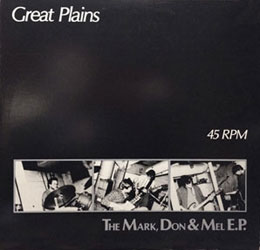
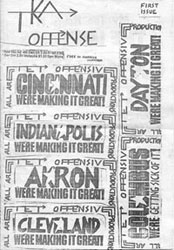

|
TB: Signed to Homestead and not selling a ton of records, that was likely Great Plains� biggest payday by far.
Don: I know. It was a big deal. I recall being at the Used Kids counter, talking about it. It was like a board meeting. I wasn�t really in on it. I was an expat. I was clear about not liking the music from the get-go. But I wasn�t bitter about it or anything.
TB: That goes back to what you were saying earlier. You were all working together due to a sheer lack of numbers. A similar ethos with slightly different tastes seemed to be the glue. You clearly got along together as people.
Don: We got along well. I was into Redd Kross and they were into the Replacements. It�s not like parallel universes. There was some overlap. I think Ron House�s stuff with Thomas Jefferson Slave Apartments is fantastic. He was trying to sing with Great Plains and Ron doesn�t have a great singing voice in terms of carrying a melody. Ron has an expressive voice. There�s no hard feelings or anything like that.
TB: Did you go to Ohio State University?
Don: For part of the time, yeah. I ended up getting my Master�s in Education so I could teach. I went to Ohio Wesleyan as an undergraduate. It�s a Methodist school. I met Tom Shannon there. I was a senior in college when Tom was either a sophomore or freshman.
TB: Jeffrey Evans went to Ohio State for an MFA in photography. Where did you first meet him?
Don: After Great Plains, I followed a girlfriend out to New York. This was the old days. I�d drop off my articles to the Village Voice that I'd written on a manual typewriter to the person at the counter of their offices. I�m claustrophobic; I felt really pinned in there. I�d go to Central Park a lot and lay down on the grass so I wouldn�t have to stare at the buildings...
TB: Did you visit New York City frequently or did you move there?
Don: I lived there for two and a half or three years. I got burned out on New York. I wasn�t particularly interested in the New York scene. Swans were starting out. I wasn�t into those bands. I loved the no-wave bands. They were going the first time I visited New York in �78. Punk rock was over, but you had the Contortions and Teenage Jesus around. Things moved really fast back then � at least compared to today. I went to a lot of hardcore matinees at CBGB. I don�t know why. There was interesting stuff coming from England at the time. Good shows at Danceteria or Hurrah. I got into country-blues in New York. Record stores there were so good. And I went to Nick Perls' house � the guy who ran Yazoo Records � in the Village and talked with him. I got into roots music because there was nothing else going on. When I moved back to Columbus in �85�I had been friends with Dan Dow because he had work at Mole�s (record store). Dan was playing Charlie Feathers songs with Jeff. A lot of country songs too.
TB: I never knew the exact origins of the Gibson Bros. So it was Dan and Jeffrey at the beginning?
Don: Right. They started out as a two piece.
TB: You were the original drummer of the Gibson Bros., correct?
Don: Yeah. They just wanted someone to play a snare drum with some brushes, so I said, �Okay.� It was the same Gibson Bros. in a lot of ways when they were still just a two piece. Completely out of tune. Jeff�s voice wasn�t any better or worse. He still had the same distinctive voice. Dan had his weird sense of timing. I remember people telling me, �You�ve got to check these guys out.� I was super depressed at the time. I didn�t know what I was going to do with my life at all. I had broken up with my girlfriend who in retrospect I should have married. The Gibson Bros. kind of cheered me up.
TB: Being Jeff�s girlfriend, it seemed natural that Ellen Hoover joined the Gibson Bros. on drums. How long were you going as a three piece before she joined? Did you coach her initially on drums?
Don: When we were recording 'Build a Raft', I couldn�t keep a beat no matter how hard I tried. I just said, �Fuck it. Ellen could do this.� To that extent I was her mentor. But the Gibson Bros. didn�t ask a whole lot from drummers. When we added Rich Lillash for those later years it was almost like a different band.
|
|
|
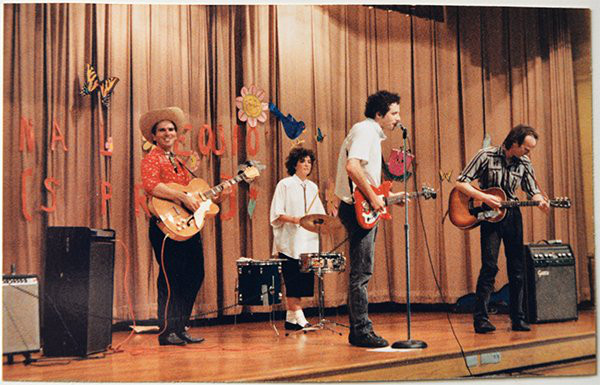
|
TB: I was talking with Ross Johnson a while back. Although the Panther Burns preceded the Gibson Bros. by several years, he mentioned that you could still get beat up in the mid �80s for playing roots music in an unconventional manner. There�s great footage of early Gibson Bros. playing ComFest �87. You didn�t seem to go over well with the general audience.
Don: That�s the one thing about the Gibson Bros. It was so bad it was almost like John Cage. It was confrontational. It seemed like art rock because nobody would do that on purpose. We never got beat up or threatened. That�s a bit of an embellishment, I suspect. I�m not sure why people liked the Gibson Bros. so much. The shows were a crapshoot. You didn�t know what was going to happen. We were so bad that we had no idea when the set would fall apart. We only knew that it would. There were elements of the band that appealed to some people. Whatever they liked was completely accidental on our part.
TB: Was it through the Great Plains connection that you got on Homestead? I imagine your point of contact was Gerard (Cosloy).
Don: I had known Gerard from the days of The Offense. Gerard used to write for it. I knew him before Great Plains. But he was our point of contact with Homestead. There wasn�t a whole lot going on in �85. It felt like a musical void.
TB: I�m sure Homestead encouraged you to tour more.
Don: That was my fault. I always kept the Gibson Bros. from touring and that was a big source of frustration for Jeff. By �87 I had a kid and I was married. I just wasn�t able to tour. Jeff really wanted to tour.
TB: You and Jeffrey had similar sensibilities; a shared sense of humor and approach to music. Unlike the Panther Burns and Gun Club, you sort of decontextualized music. You weren�t opposed to putting a traditional song and an Alice Cooper cover on the same album. Jeffrey likened it to, �Wearing all the right clothes with the wrong shoes.�
Don: That�s a pretty good way of putting it! While the Gibson Bros. were going on we were all into different kinds of music. Dan (Dow) was, and I still think is, really into country. Jeff was into rockabilly, especially crazy rockabilly. I was into blues and hip-hop. Hip-hop was going on in New York when I was there, and I really liked Run-D.M.C. and Eric B. and Rakim. We all liked the Butthole Surfers. We didn�t really have an agenda. We just liked a bunch of different music, and because we were so limited it all came out sounding the same.
TB: Did you ever leave the Midwest with the original lineup?
Don: We played in Canada. We did a lot of East Coast stuff. Week-long tours. We played Boston. Maxwell�s. I don�t think we played CBGB until Jon (Spencer) joined. I don�t think the original lineup did a West Coast tour.
TB: I�m not sure if you want to discuss the breakup of the original Gibson Bros. The story is pretty well spelled out by Jeffrey in the liner notes to (�68 Comeback�s) 'A Bridge Too Fuckin� Far' (1998).
Don: Right. That was pretty explicit. Jeff really had an aversion to working a forty-hour work week. He was blindsided by what happened. Ellen wanted him to have a job. Dan quit before Ellen left, for the record.
TB: There�s a single (�My Huckleberry Friend�) she�s on that Dan isn�t.
Don: Right. We played a ComFest show with Jack Taylor on guitar and Ellen drumming, so she was around for another six or eight months after Dan left.
TB: I really liked Jack Taylor�s (1965-1997) guitar playing. Of course, he played with Jeffrey later on in �68 Comeback. Was he slotted to replace Dan permanently in the Gibson Bros.?
Don: That�s definitely the case. Unfortunately, Jack had a drug problem. We had a practice where he was way too messed up to play. He was a super nice guy. His girlfriend � I never knew if they got married or not � was nice too. That was tragic.
TB: Everyone I�ve spoken with who knew Jack liked him.
Don: Jack was a little, cherubic kind of guy. Really sweet. He was kind of like a shorter, chubbier version of John Cusack in The Grifters. He had a wiseass aspect to him that kept you on your toes.
TB: Jeff told me a great �68 Comeback-era story about Jack Taylor. They were playing a show in Tucson, Arizona. Within thirty minutes of getting to the club, Jack pulls around in a brand new Mercedes. Jeff asked him where he got it; Jack told him, �I met a girl. She loaned me her car. I can�t help it if she�s rich.�
Don: (laughs) �68 Comeback was Jeff�s way of touring more. He got a band together with a bunch of drug addicts. Jeff was like the cub scout leader, and he had a bunch of bad cub scouts. He released a lot of really good records with �68 Comeback.
|
|
|
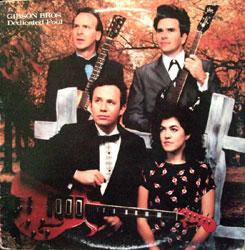
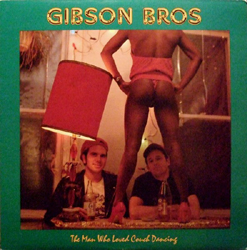
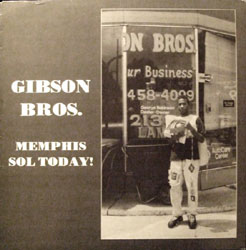
|
TB: You mentioned your love of hip-hop earlier. Was it your idea to include all those samples on 'The Man Who Loved Couch Dancing' LP (1990)?
Don: Yeah. But Jeff did some stuff that bordered on hip-hop too, like all those scenarios at the beginning of N.W.A. records he pulled from. �Is Desiree ready to service me?� (From Jeff�s opening to Gibson Bros.� 1989 LP, 'Dedicated Fool')
TB: Twenty-six years later and it�s still hard to believe Norton sued Homestead over the A-Bones sample on 'The Man Who Loved Couch Dancing'
.
Don: I know! (laughs) That was all Miriam Linna. I don�t think Billy Miller would have done anything. I think he would have taken it as a joke. She got it stuck in her craw. We were just cracking up. It was a joke.
TB: Jeffrey told me Homestead got in contact with him on the road and instructed you guys not to sell any more records. To which Jeffrey replied, �Tough shit. We need money for gas.�
Don: And that probably amounted to eight more record sales (laughs). I bet Jeff has a much better memory of that stuff than I do.
TB: Did the Norton lawsuit take the wind out of the Gibson Bros.� sails? Of course, you did record 'Memphis Sol Today!' (1993) three years later just before the group ended.
Don: It was just a shame. The timing was terrible. 'The Man Who Loved Couch Dancing' had been out for maybe two weeks. Not long at all. But that record is super weird at the same time. Jeff was determined to leave Columbus after his breakup with Ellen, and I was going to go with him to Memphis. We were going to open up a record store. My wife had gotten pregnant by that point, and I started to panic. In retrospect, staying in Columbus was the right decision. I don�t regret it. I would have never made enough money running a used record store in Memphis to support a family on. That�s what broke the Gibson Bros. up. But Jeff wanted to be the front man anyway. He wanted to call more of the shots. I had stuff I wanted to do, so things worked out fine.
TB: 'Memphis Sol Today!' was recorded at Sun Studios right after a horrendous tour. Jeff told me a great story where, with all of these amazing amplifiers available to use, you chose to play through your cheap solid-state Crate amp. You said something like, �No. I�m cool. I�ve got my tone.�
Don: (laughs) I think we were pretty drunk by the time that decision was made. When we went in there, they recorded only at night because it�s a tourist attraction during the day. We went in at six or something. We got hammered before we even started. That�s always been my approach though. I�m not a fancy equipment guy. I don�t have any problem with digital recording. To me, the easier and cheaper the better.
TB: The Gibson Bros. started to get some coverage near the end. You were in Spin and some of the bigger magazines.
Don: That was because of Homestead. They had Dinosaur and Sebadoh and all that. At the time, there weren�t very many labels that weren�t hardcore labels that had any sort of integrity. People paid attention to Homestead bands for that reason. We got reviewed and our picture in Spin. We got in the Village Voice. But that was as far as it went. When you listen to those Gibson Bros. records they�re so rank. Again, it sounded so bad it was like art rock. But at the same time Jeff�s got his Master�s. We weren�t pretentious in any way at all, but we liked the weird aspects of it. We didn�t have any control over it. The music just came out that way. People like Byron Coley liked it. It must have been weird to see someone up on stage with the amount of chutzpah we had.
TB: Jeff�s stage performance and banter and some of the things he�d wear in the early days were outlandishly great.
Don: Oh, man! They were. He was great. I didn�t know what I was doing with an instrument at all. When the Gibsons started I couldn�t really do much so I stood pretty still. Jeff was the focal point of the Gibson Bros. He had that huge rockabilly quiff at the outset. He�d wear cool clothes. The Gibson Bros. were a fun band to see. Ellen was and still is pretty. That counted for a lot.
TB: There was a little bit of an overlap with the Bassholes and Gibson Bros.
Don: Rich (Lillash) and I would practice up in Columbus for the Gibsons shows. The Memphis session (for 'Memphis Sol Today!') sort of solidified the fact that we couldn�t have part of the band in Memphis, the other part in Columbus. We realized we had to wrap it up. But Rich and I kept practicing anyways. Those first Bassholes songs were songs I would have done with the Gibson Bros.
TB: What was the deal with the Bassholes and the Archive Series (of record titles) that sort of drops in and out?
Don: The first record was a close-as-possible copy of the blues series of records that the Kent label put out. That�s where the Archive Series comes from.
|
|
|
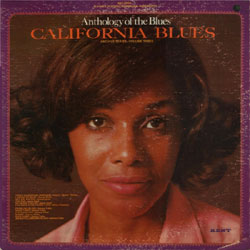
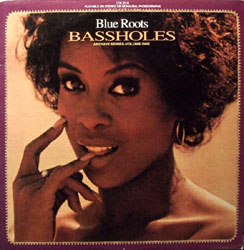
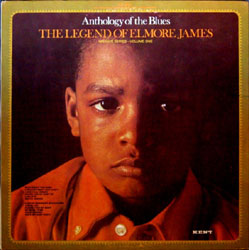
|
TB: I heard a great early Bassholes story where you were asked to open up for Sebadoh. Apparently in the �70s you had gone to a Sly and the Family Stone concert that Sly Stone had cancelled in Columbus. It left a big impression on you. Do you know what I�m talking about?
Don: That�s a true story. After Woodstock, Sly and the Family Stone got super popular. They had these big concert tours and Sly Stone would blow off shows all the time. He cancelled the show I went to in Columbus. I was really impressed by the idea that by not showing up you could make an even greater statement. When I was supposed to open up that Sebadoh show, I didn�t even call to let them know I wasn�t showing up. We were supposed to drive to Chicago which is about an eight-hour drive. I just didn�t feel like making it. We cancelled that tour with Cheater Slicks and �68 Comeback as well. People thought the Bassholes were completely irresponsible, and that didn�t help anything.
TB: (laughs) It�s a very peculiar take on career advancement.
Don: It was a matter of not giving a shit. I don�t regret not showing up. I didn�t think of the Bassholes in the terms of Sly and the Family Stone, obviously. Nevertheless, Sly Stone not showing up left a big impression on me. I never cared at all about being well known, let alone famous. From the start. I was talking with Bela Koe Krompecher, a great guy who runs Anyway Records, recently and he reminded me that in the late �80s the Gibson Bros. were already old. We started the band in our mid-twenties. When the Gibsons started we never anticipated doing anything outside of town or ever making a 45, let alone an album. And afterwards, we never thought, �Well, if we had done things differently, we could have been successful.� It was never anything like that. I think Jeff went through that briefly with �68 Comeback.
TB: Jeffrey had the distinction with �68 Comeback of fronting the band that acted as a launching pad for other groups that achieved a modicum of success.
Don: Yeah. People definitely took their cues from Jeffrey. It�s a shame he didn�t start �68 Comeback earlier I suppose.
TB: 'When My Blue Moon Turns Red Again' (1998) was markedly different from your other records. It�s one of my favorite Bassholes albums. The songwriting is great and the production is outstanding.
Don: Oh, yeah.
TB: Larry (Hardy) told me the record, although spread out over different sessions, took two years to finish.
Don: It took two weeks to record, but it was one week of recording and then another week of recording two years later. Larry was adamant about doing a double album. He loved the idea. That album would have been unbelievably good, assuming you liked that kind of music, had we done a single album. The record had a lot to do with Larry. There are twenty Bassholes fans in the world. Ten of them like the hi-fi stuff, the other ten like the lo-fi stuff.
TB: I like the hi-fi stuff.
Don: The self-titled (2005) album on Dead Canary is another high-fidelity record. That one is well produced. The songs are weird because the musicians on it are really accomplished, yet it�s far from professional. It�s the record my son said, �If you were ever going to get famous, that record would have been the one.� The Matador album ('Long Way Blues/1996-1998')�I wanted Matador to put out 'When My Blue Moon Turns Red Again', but Larry had put too much time into it. Had Matador put it out (as opposed to 'Long Way Blues'), maybe things would have been different. Who knows?
TB: Ego Summit seemed to come out of the blue. I admit to knowing very little about the band, other than the record and the people involved.
Don: I can�t remember whose idea it was (to form the project), but it was an idea that was floating around; there was no big impetus. Somehow one of the other guys got the ball rolling.
It was kind of a weird project in retrospect. I went to Columbus last Thanksgiving and I saw Ron and the Counter Intuits. Mike Rep and Tommy Jay were there and I was feeling good. So I said to Tommy Jay, �Hey, we should do another session.� He said, �I can�t believe that�s coming from you.� Those guys have big egos. Tommy Jay doesn�t. Ron and Rep do. The best part of that record was getting to work with (Jim) Shepard. I�m so grateful for that, seeing as he killed himself not too long afterwards. I had known him for a really long time but just as an acquaintance. Recording with him was a blast. His death precluded ever doing it again anyway, really.
|
|
|
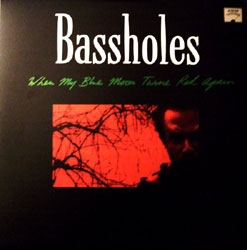
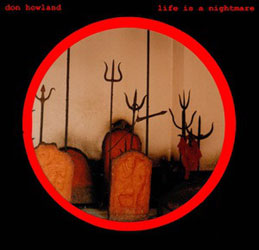
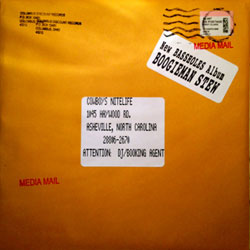
|
TB: You moved to Asheville, North Carolina, shortly after the Ego Summit record, right?
Don: Yeah. I was in a rental, waiting to move into a house (in Asheville), when Ron called me with the news that Jim Shepard died. The Matador record and the double (In the Red) record came out in �98, and I moved to Asheville a month before. There was no chance to tour behind those records. It was not a career rock move at all.
TB: What inspired you to move to Asheville?
Don:I just wanted to find a place that was a small city. I wanted my kids to go to a school where everyone went to the same school. It�s super pretty here. Unfortunately, it�s completely fucked now. Rich people are moving here in droves, jacking the prices up. There are pluses and minuses to that. It�s so white here. I�m getting out of here. I�m selling my house.
TB: You were teaching in Asheville?
Don: I�ve had a few teaching jobs in Asheville. Right now, I�m teaching at a community college. I teach ESL and a GED program.
TB: Not only did I like The Bassholes� 'Boogieman Stew '(2013), I was happy to see Ellen Hoover on the record.
Don: She and I�ve stayed friends throughout the years. I go back to Columbus once or twice a year and I always visit Ellen and her husband. Tom Shannon too.
TB: What�s the deal with the Bassholes? Most of your recent material has been Burning Bus or solo.
Don: A lot of that has to do with Bim (Thomas). He�s got the Obnox thing going full steam. It�s at a pace that�s Billy Childish-like. Every time I turn around there�s another album. He�s constantly touring. We talked about doing something because we�re still friends and I think next year will be the twenty-fifth anniversary of the Bassholes, whatever that means. We talked about playing some shows, going to Europe. I also played some Bassholes shows with the drummer (James Owens) of Wooden Tit.
TB: Any chance of another Gibson Bros. show? There was the 2010 reunion show for the 'Build a Raft' reissue that took a few people by surprise.
Don: I can�t believe it happened. Ellen, Dan and I would do it automatically. Jeff was the one who wouldn�t. He has a lot of baggage with Ellen. He worked for Dan too when Dan ran Used Kids. That didn�t go so well. I�d like to get that �91 Gibson Bros. lineup together for something next year � Rich Lillash, Jon Spencer, me and Jeff. We�ll have to talk with Jeff about that one.
TB: I was really pleased by your 12XU record, 'Life Is a Nightmare' (2015). That�s one of the better records you�ve done.
Don: I like the one Larry Hardy�s about to put out as well. That record is just totally distilled down. I was listening to a lot of �76 punk. It always sounds so good. It�s music that turned my life around. That�s what was going on with 'Life Is a Nightmare'. My no-holds-barred view on the world really came through. Pretty abysmal. It�s really pure I�d guess you say. It�s not great playing or anything. But it�s genuine�genuine depression and anger from an old person.
TB: There�s some atmospheric stuff on there. �Pope Innocent� for example. Your records keep evolving.
Don: Thank you. I really started reading heavily about ten years ago. I got a job working out on a vineyard. And when I was teaching I had to constantly read. I�ve been thinking a lot more the last decade or so.
TB: Larry mentioned the solo record you�ve got coming out on In the Red. Rich asked me about the Burning Bus LP that�s been in the can for a while. Larry is releasing the Burning Bus record as well, correct?
Don: Burning Bus�Larry wants to put it out. People who�ve heard the record seem to really like it. When I hear it, and forget what it is, I like it. It was just a band that had personnel I wasn�t crazy about. I didn�t really enjoy the band part of it. Burning Bus basically turned into Wooden Tit. I�ve always liked metal and heavier stuff. It just comes with growing up in the Midwest. We do a version of �Faith Healer� by the Sensational Alex Harvey Band. That song�s a big favorite of mine. We played Goner Fest twice and that was about it. It�s a lot like the Wooden Tit record. It�s angry, loud with three guitars. I�m glad it�s coming out. It�s about the only time anyone�s had to try to convince me to put a record out.
TB: What�s in the future beyond leaving Asheville?
Don: I�m not sure. And I don�t know where I�m going. I�ve just got to get out. It reminds me of when I left Columbus. When you have to leave, you have to leave. I want to do another record after those two come out on In the Red. If Bim and I could get one-thousand bucks to play a show, I�d do it. But after the next album, I think I�m done. I mostly just listen to classical music now. Eastern European music. The absence of a driving beat�it�s like being untethered, cut off, like floating in space. I listen to that all the time. I think that�s how I want to ride it out. Some people end up in jazz. Classical music just hits the spot. I read a lot of history. The more I read, the less I like humanity. When you put it all together, the world really is a nightmare (laughs).
|
|
|
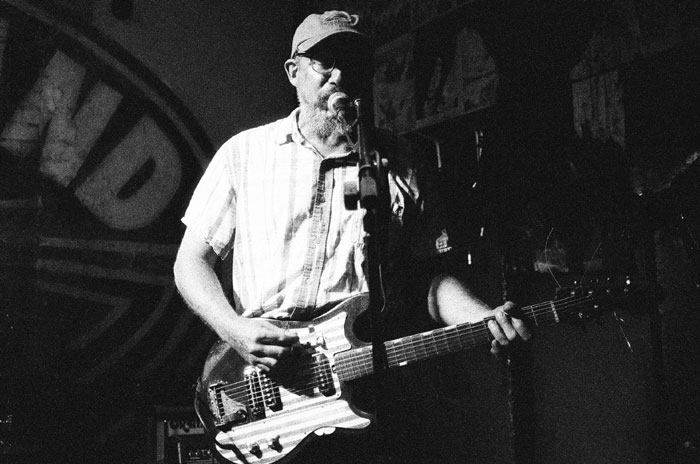
|
END INTERVIEW
Don is on bandcamp HERE.
Purchase a copy of 'Life Is A Nightmare' via 12XU HERE.
Browse Don's extensive discography HERE.
A Burning Bus live at Gonerfest 6 HERE.
Don live at Beerland HERE.
Bassholes video for "Microscope Feeling" HERE.
Live B&W; photos of Don by Mor Fleisher-Leach.
All other photos/images borrowed from the internet.
Interview by Ryan Leach, 2016.
To purchase Bored Out, Ryan's collection of interviews, go here.
To read other TB interviews, go here.
|
PREVIOUS PAGE � HOME � NEXT PAGE
|
</body

















